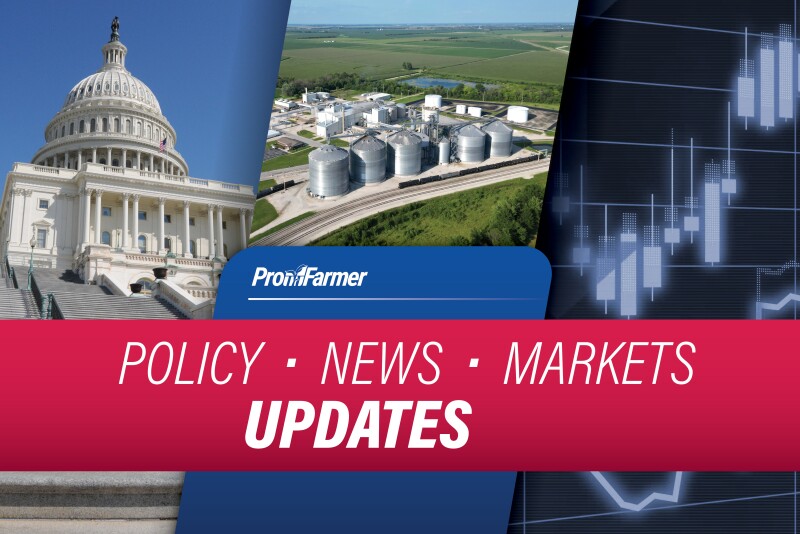U.S. trade deals on hold pending GOP tax and spending bill... The Trump administration is delaying the announcement of new trade deals until Congress passes the Republicans’ massive tax-and-spending bill, according to National Economic Council Director Kevin Hassett. The so-called “megabill,” currently the subject of heated negotiations, includes major tax cuts and spending provisions and is expected to be finalized around the July 4th congressional recess.
Hassett said the administration is “very close” to finalizing trade arrangements with several countriesbut is deliberately holding off until the tax bill is enacted. Treasury Secretary Scott Bessent echoed the strategy, arguing that a stable domestic tax environment will strengthen the U.S. position in global trade negotiations and provide greater certainty to American businesses.
The $4.2 trillion Republican package has prompted internal party debate over its size and proposed spending cuts. Passage of the bill is seen as a prerequisite for unlocking trade agreements with nations including India, Japan, and Vietnam, and for addressing issues such as digital taxes on U.S. businesses abroad.
The White House’s integrated approach aims to leverage domestic fiscal reforms to secure stronger trade outcomes. Once the bill passes, officials say a wave of trade deal announcements is expected, potentially reshaping the U.S. economic landscape and its global alliances.
China signals willingness to cooperate with U.S. on fentanyl... China announced a major step toward addressing U.S. concerns about the fentanyl crisis by imposing stricter controls on two key precursor chemicals used in illicit fentanyl production. Effective July 20, 4-piperidone and 1-boc-4-piperidone will be classified as Class 2 chemicals, subjecting them to tighter government supervision. The move, unveiled jointly by six Chinese government departments, is widely seen as a gesture of goodwill toward the U.S. and a potential effort to ease ongoing trade and law enforcement tensions.
The proliferation of Chinese-made fentanyl precursors has been a persistent source of friction between Washington and Beijing. Despite China’s 2019 decision to classify all fentanyl analogues as controlled substances, U.S. officials have continued to urge Beijing to clamp down further on precursor shipments. The latest announcement follows renewed diplomatic engagement. Last week, China’s Minister of Public Security Wang Xiaohong met with U.S. Ambassador David Perdue in Beijing to discuss deeper cooperation on drug enforcement and immigration issues. Both sides stressed the importance of mutual respect, with Perdue expressing commitment to strengthening bilateral ties.
China’s decision comes amid heightened U.S. tariffs on Chinese goods, some of which have been justified by American officials as responses to Beijing’s perceived inaction on fentanyl. By tightening controls, China may be signaling a willingness to cooperate on a critical U.S. domestic concern while seeking to improve the overall climate for trade talks and law enforcement collaboration. The step also builds on earlier initiatives, such as real-time law enforcement hotlines and technical exchanges between U.S. and Chinese agencies.
Bottom Line: The move marks a pragmatic turn in China’s approach — addressing a central U.S. priority without compromising its broader strategic interests — and could open the door to improved bilateral relations and practical gains in fighting the global opioid crisis.
U.S., Mexico near deal on steel import quota to ease tariffs... The U.S. and Mexico are in advanced talks to set a quota on Mexican steel imports that would allow a set volume to enter the U.S. at a lower tariff rate — a move designed to ease the impact of President Trump’s steep 50% duties while protecting domestic steelmakers.
Under the proposed framework, a “tariff-rate quota” would let Mexican steel imports up to roughly 2.8 MMT — based on the average shipped from 2015 to 2017 — avoid the full 50% tariff. Instead, these imports would face a 10% baseline charge. Imports above this threshold would be subject to the higher duty. This plan would set the quota at about 88% of 2024 import volumes, ensuring U.S. steelmakers maintain a larger domestic share while giving some relief to manufacturers who rely on Mexican steel for cars and other products.
The quota is intended to strike a balance: protecting U.S. steel capacity, providing manufacturers with affordable supply and supporting a key trade partner.
Talks are still underway, but the quota approach reflects methods previously used in U.S. trade pacts with the UK and others – and comes amid intense industry lobbying on both sides of the border.
Trump loosens Iran oil sanctions, allowing China to resume purchases... President Donald Trump announced Tuesday that China can resume purchasing oil from Iran, marking a sudden shift away from Washington’s “maximum pressure” campaign against Tehran’s critical oil exports. The move came just hours after Trump declared a fragile ceasefire between Israel and Iran, following U.S. airstrikes on Iranian nuclear facilities over the weekend.
Trump’s decision is a stark reversal from his previous policy: just last month, he threatened to sanction any entities buying Iranian oil, vowing to cut Iran’s exports to “less than 10% of current levels.” U.S. secondary sanctions targeting Iranian oil sales — and Chinese companies in particular — remain in place, but Trump’s comments raise uncertainty over future enforcement.
The U.S. sanctions campaign was designed to pressure Iran into abandoning uranium enrichment and curb its ability to develop nuclear weapons. Although U.S. airstrikes reportedly damaged Iranian nuclear sites, the International Atomic Energy Agency says it is still unclear what happened to Iran’s stockpile of 409 kilograms of highly enriched uranium, enough for up to 10 warheads.
While the White House has sanctioned hundreds of tankers moving Iranian oil, and many buyers remain wary, Trump’s announcement could reshape global oil flows and diplomatic dynamics — though it remains unclear how quickly, or broadly, restrictions will actually be lifted.

